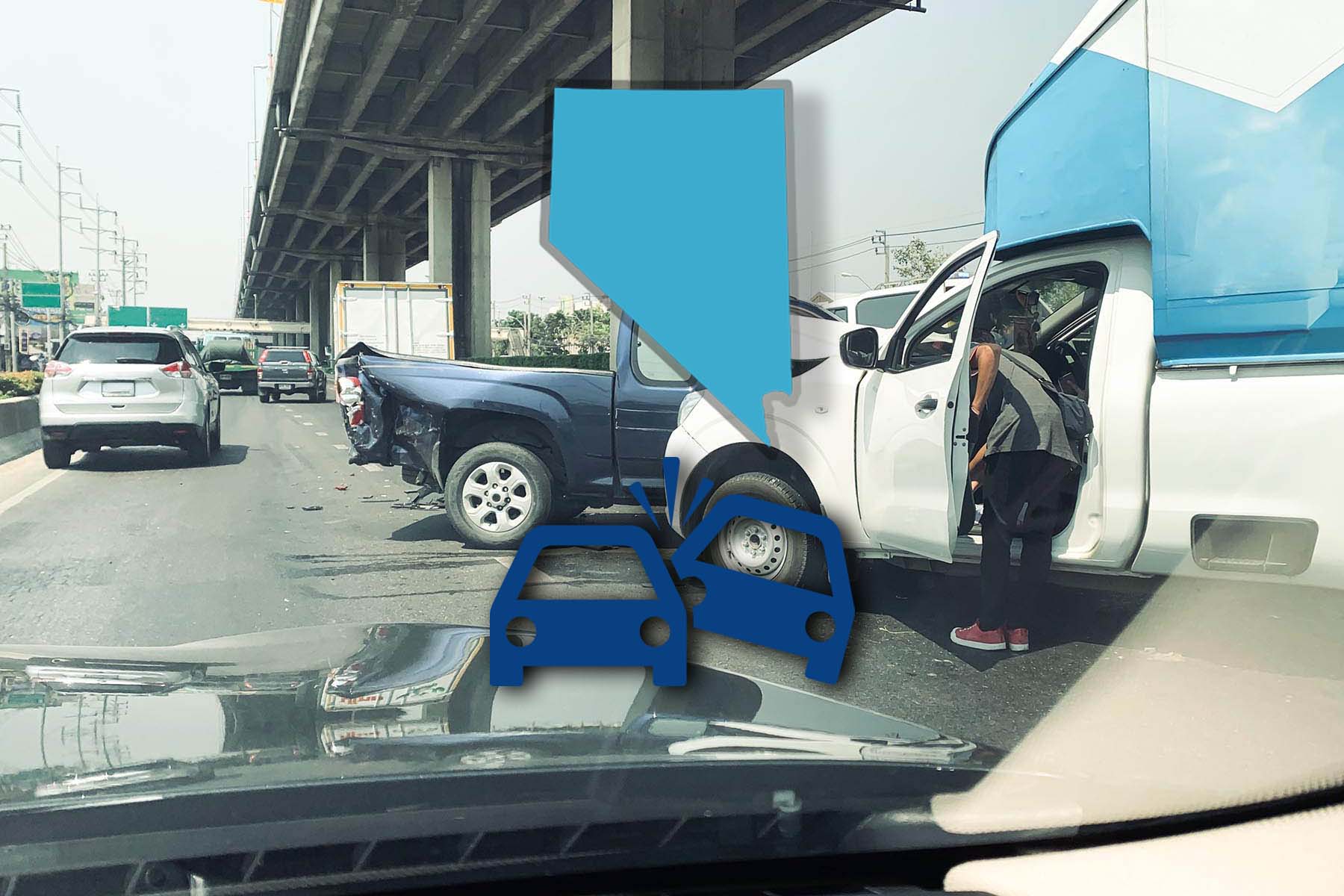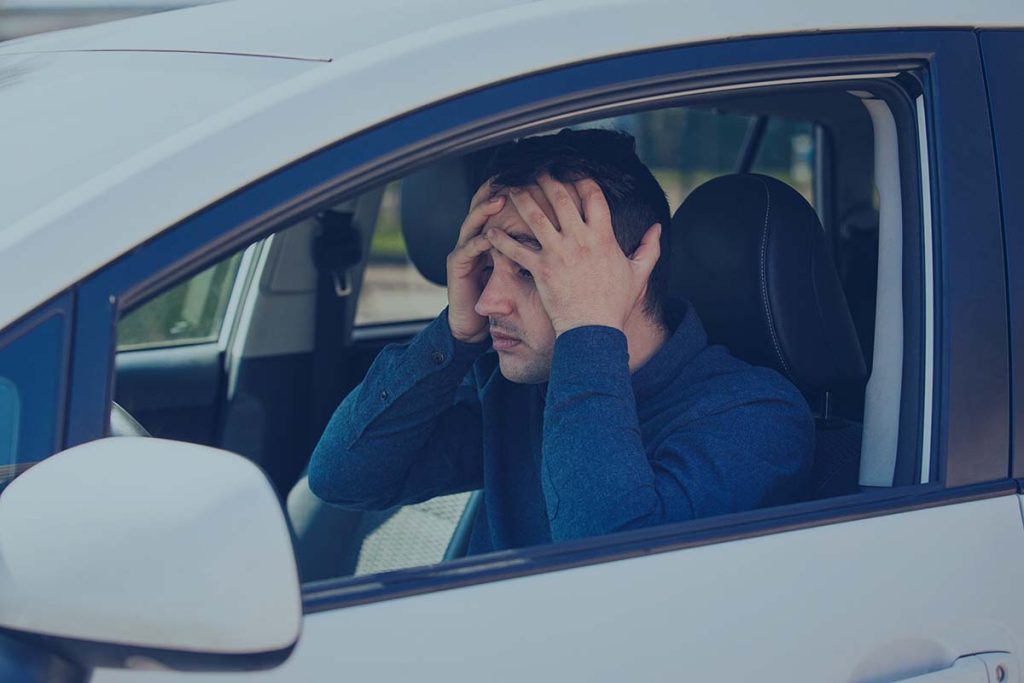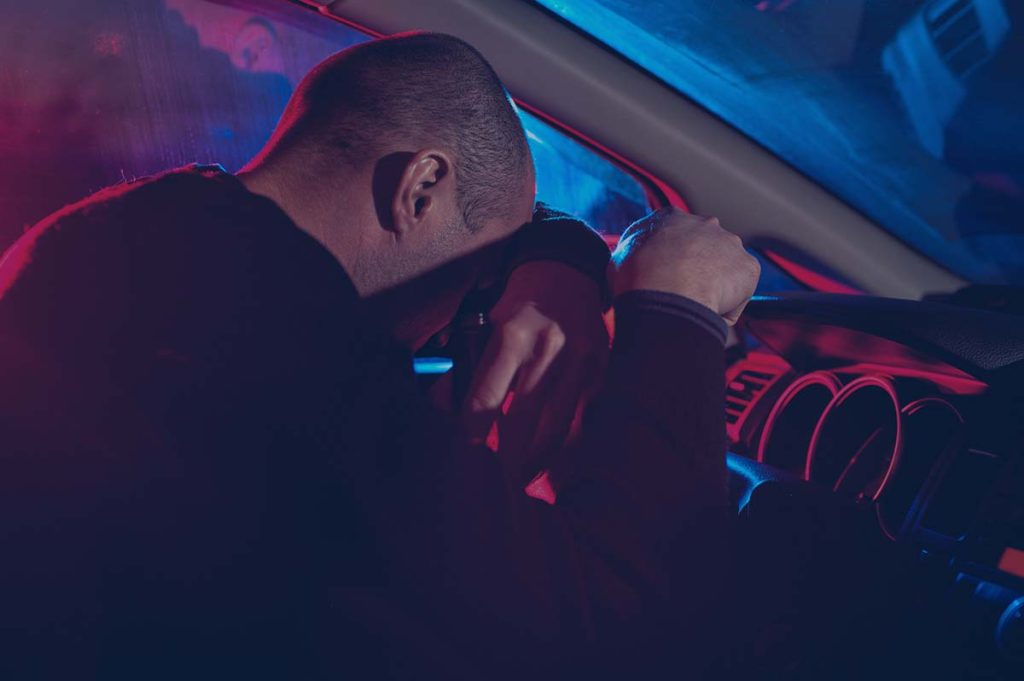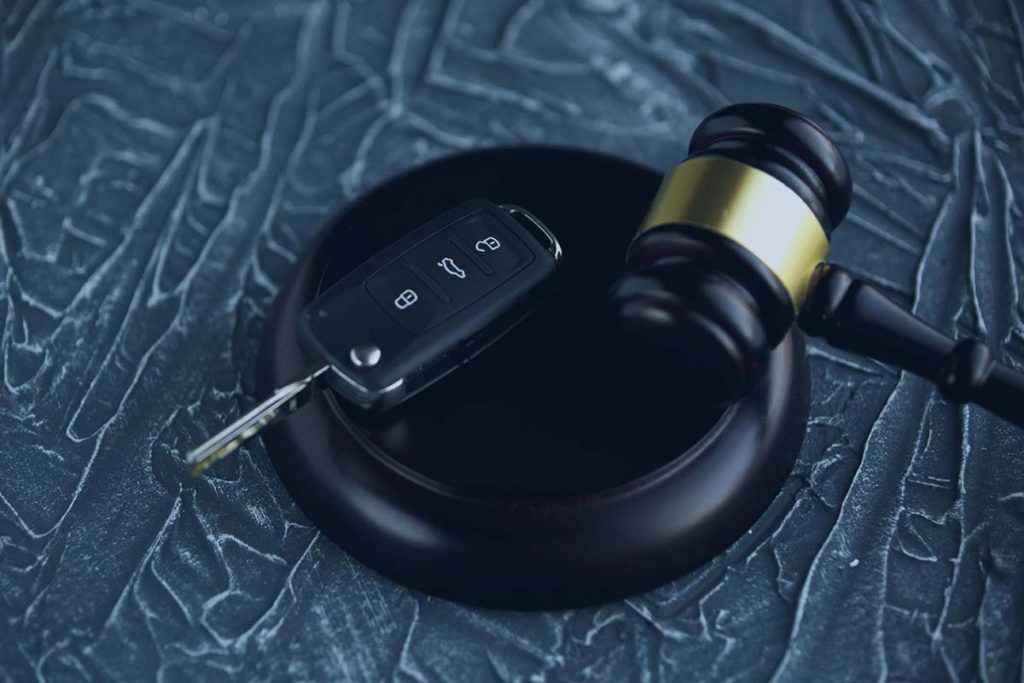
Last verified: January 2026. This page reflects current Nevada Revised Statutes Chapter 484E governing hit and run offenses.
📑 Table of Contents (click to expand)
Quick Summary: Nevada Hit and Run Laws
Under Nevada Revised Statutes Chapter 484E, leaving the scene of an accident carries serious criminal consequences. Here is what you need to know:
- Property damage only: Misdemeanor, up to 6 months in jail and $1,000 fine (NRS 484E.020)
- Death or injury: Category B felony, 2 to 20 years in prison and up to $5,000 fine (NRS 484E.010)
- Reporting requirement: You must report accidents involving death, injury, or property damage exceeding $750 within 10 days
- License points: A hit and run conviction adds 6 demerit points to your license
- Fault state: Nevada follows a modified comparative fault rule
References:
Your Legal Obligations at the Scene of an Accident in Nevada

NRS 484E.030 establishes the “duty to give information and render aid.” When you are involved in a crash on a Nevada highway or any location with public access, you must:
- Stop immediately at the scene or as close to it as possible without creating additional traffic hazards
- Provide your information including name, address, and vehicle registration number to the other driver, property owner, or law enforcement
- Show your license upon request to the other party or a peace officer
- Render reasonable assistance to anyone injured, including arranging transportation to a medical facility if needed
- Report the accident to the nearest police station or Nevada Highway Patrol if no officer is present at the scene
Note: Accidents on private property still require you to exchange information with the other party. However, police typically only respond to private property accidents if there is substantial damage, injury, or death.
Misdemeanor Hit and Run in Nevada

Under NRS 484E.020, leaving the scene of an accident that results only in property damage is a misdemeanor. The penalties include:
- Up to 6 months in county jail
- Maximum fine of $1,000
- 6 demerit points on your driving record
Accumulating 12 demerit points (which could happen with a second misdemeanor hit and run) will result in license suspension for up to one year.
Hitting a Parked or Unattended Vehicle
NRS 484E.040 addresses situations where you damage a parked vehicle or unattended property. You must:
- Stop your vehicle immediately
- Make a reasonable effort to locate the property owner
- If you cannot find the owner, leave a written note in a conspicuous place with your name, address, and contact information
- Report the accident to police if damages appear to exceed $750
Reportable Accidents in Nevada
Under NRS 484E.050 and 484E.080, you must report any accident resulting in:
- Death or injury
- Property damage exceeding $750
You have 10 days to file a written report. Failure to report can result in license revocation for up to one year or until you demonstrate the failure was not willful.
Felony Hit and Run in Nevada

NRS 484E.010 makes it a Category B felony to leave the scene of an accident that results in death or bodily injury. Key provisions include:
- Separate offense per victim: If you strike multiple people, each death or injury constitutes a separate felony offense
- No probation: Felony hit and run is not a probational crime in Nevada. The court cannot grant probation
- Mandatory prison time: A minimum of 2 years in state prison is required
The statute states:
“A person failing to comply with the provisions of subsection 1 is guilty of a category B felony and shall be punished by imprisonment in the state prison for a minimum term of not less than 2 years and a maximum term of not more than 20 years and by a fine of not less than $2,000 nor more than $5,000.”
DUI Hit and Run in Nevada
If you leave the scene while under the influence of alcohol or drugs, you face additional charges. A DUI hit and run resulting in death can escalate to a Category A felony if you have three or more prior DUI convictions, carrying a potential sentence of life in prison.
Reckless driving that results in death is also a Category B felony.
Evading Police
Willfully failing to stop when instructed by a police officer is a misdemeanor for property damage accidents. If the accident results in death and you fail to stop for police, the charge becomes a Category B felony, punishable by up to 20 years in prison and a $50,000 fine.
Nevada Hit and Run Penalties Summary
- Property damage hit and run: Misdemeanor, up to 6 months jail, $1,000 fine, 6 demerit points
- Hitting unattended vehicle: Misdemeanor, up to 6 months jail, $1,000 fine
- Hit and run with injury or death: Category B felony, 2 to 20 years prison, $2,000 to $5,000 fine, license revocation
- DUI hit and run: Category B felony (may escalate to Category A with prior DUI convictions)
- Failure to report: License suspension up to 1 year
- False report: Gross misdemeanor, up to 364 days jail, $2,000 fine
- Evading police (death involved): Category B felony, up to 20 years prison, $50,000 fine
- Vehicular homicide with prior DUI history: Category A felony, up to life in prison
Nevada Hit and Run Statistics
Traffic safety remains a significant concern in Nevada, particularly in the Las Vegas metropolitan area:
- 2024 Clark County data: 81 fatalities from 70 car crashes in the first half of the year alone
- Pedestrian fatalities: 33 pedestrians killed in Clark County in early 2024, a 94% increase compared to the same period in 2023
- 2023 Las Vegas statistics: 149 traffic deaths from 144 collisions
- DUI factor: Approximately 42.7% of Nevada’s fatal car accidents involve intoxicated drivers
The Nevada Department of Transportation maintains a crash data dashboard tracking fatal accidents by location and behavior.
Notable Nevada Hit and Run Cases
State v. Ayala and Keys (2023)
In August 2023, two teenagers, Jesus Ayala (17) and Jzamir Keys (16), were arrested after intentionally striking and killing retired California police chief Andreas Probst while he rode his bicycle in Las Vegas. The incident was recorded on video from inside the vehicle. Both were charged as adults with murder and indicted by a grand jury in October 2023.
After the arrest, Ayala reportedly told police he expected only “a slap on the wrist” as a juvenile. In December 2025, both defendants received lengthy prison sentences after pleading guilty. The case drew national attention and sparked discussions about juvenile accountability for violent crimes.
Civil Liability and How Fault is Determined

Nevada follows a modified comparative fault rule. This means you can recover compensation if your share of responsibility is less than 51%. If you are 51% or more at fault, you cannot recover damages.
Statute of Limitations:
- Personal injury claims: 2 years from the date of accident
- Property damage claims: 3 years
- Wrongful death claims: 2 years from the date of death
What to Do at the Scene
To protect your legal rights and potential civil claims:
- Never admit fault at the scene
- Collect evidence including photos, witness information, and dashcam footage
- Do not comment on your physical condition until you see a medical professional
- Call law enforcement
- Exchange information with the other party
- File a police report within the required timeframe
- For serious accidents, contact an attorney before speaking with insurance companies
Possible Defenses to Hit and Run Charges
Nevada law requires that you knew or should have known about your involvement in an accident. Potential defenses include:
- Lack of knowledge: You were genuinely unaware that an accident occurred
- Incapacity: You were physically unable to exchange information or render aid due to your own injuries
- Involuntary departure: You were forced to leave the scene due to threats or safety concerns
- Compliance: You fulfilled all statutory obligations before leaving
- Victim refusal: The other party refused to accept your information or acted aggressively
Frequently Asked Questions
How long do I have to report an accident in Nevada?
You must report accidents resulting in death, injury, or property damage over $750 within 10 days. For accidents at the scene, you should notify police “by the quickest means of communication” if no officer is present.
Can I get probation for felony hit and run in Nevada?
No. Under NRS 484E.010, felony hit and run involving death or injury is not a probational crime. If convicted, you must serve prison time.
What if I left the scene but came back later?
Returning to the scene may be considered a mitigating factor, but it does not eliminate the offense. Once you leave without fulfilling your legal obligations, you have committed hit and run. Consult with an attorney immediately.
Will my license be suspended for hit and run?
A misdemeanor conviction adds 6 demerit points. A felony conviction results in license revocation. Additionally, failure to report an accident can result in license suspension for up to one year.
What if I hit an animal?
Nevada law requires you to stop and report accidents involving animals if there is property damage. You should contact animal control or police, especially if the animal is injured.